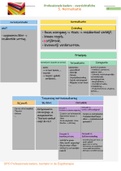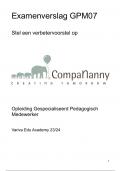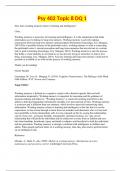Tentamen (uitwerkingen)
PYC3701 MCQ EXAM PACK 2023
- Vak
- Instelling
- Boek
PYC3701 Latest exam pack questions and answers and summarized notes for exam preparation. Updated for October November 2023 exams . For assistance Whats-App.0.6.7..1.7.1..1.7.3.9 . All the best on your exams!!
[Meer zien]








